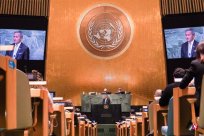McGonagen, one of Australia's largest banking group, said that China's trade surplus this year will reach a record $ 1 trillion (about 1.43 trillion yuan), but with the decline in business confidence, this will decline.The surplus is not enough to block the decline of the RMB against the US dollar.
According to the Bloomberg Society on Monday (September 26), McGea's chief Chinese economist Hu Weijun wrote in the report that although China's commodity trade surplus is expected to reach the highest level in global history, in view of this year, this yearBusiness confidence has fallen greatly, and exporters have been reluctant to exchange foreign exchange back to RMB.
Hu Weijun estimates that the exchange rate of exchange settlements from January to August this year decreased from 57%in the same period last year to 36%.He said that the proportion of this year was 50%in the first quarter of this year, which was relatively high, but it fell sharply after the sealing city in Shanghai for several months earlier this year.
According to McGea analysis, under the circumstances of economic weakness, exporters may bet on the RMB further decline, or the demand for re -investing in operating funds for RMB is reduced.It needs to convert its foreign income to RMB.This means that the product surplus has a small effect on eased the devaluation of the RMB.
Hu Weijun said that although the trade surplus reached a record high, the depreciation pressure on the US dollar was still strong.He said that in view of the strong and weak business confidence of the US dollar, McGust by Macquarie's foreign exchange strategist predicts that by the end of this year, the RMB against the US dollar exchange rate will fall to 7.15.
Hu Weijun said that the exchange rate of trade trade in commodity trade may be the key to changing the overall situation of RMB.He said that if the second quarter did not decrease so much, this year's increase in commodity trade surplus could have offset capital outflows from other sources such as bond markets.
Therefore, Hu Weijun believes that China may need more policy easing to stabilize the RMB instead of less, which is the opposite of more loose measures that may weaken RMB.
Hu Weijun said that if a strong economic recovery can enhance confidence, exporters will convert more dollars into RMB.



